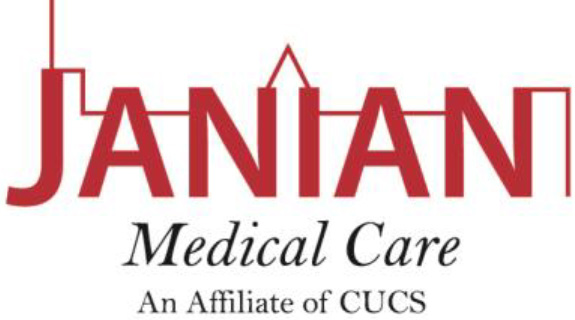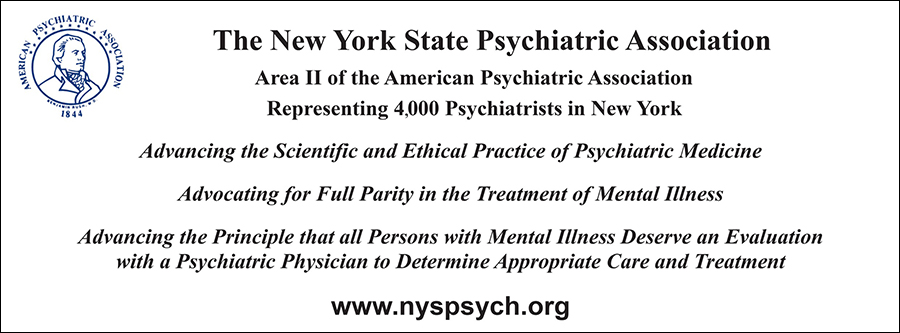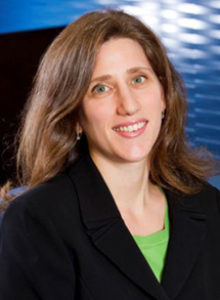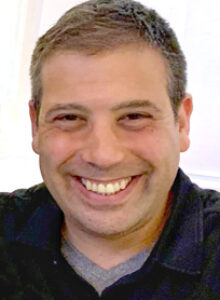Janian Medical Care is a group practice of mental health clinicians and the largest provider of psychiatric care to homeless and formerly homeless people in New York City. Janian Medical Care partners with housing providers across the city and operates the Project for Psychiatric Outreach to the Homeless (PPOH).
The following are excerpts from a conversation on December 7, 2023, with Tony Carino, MD, Director of Psychiatry. This interview has been edited for clarity.
Rachel A. Fernbach, Esq.: Good evening, Dr. Carino. Thank you so much for taking the time to speak with Behavioral Health News. Can you tell our readers a little bit about the history of Janian Medical Care and PPOH?
Tony Carino, MD: Janian Medical Care and PPOH began as a volunteer organization started by Dr. Kathy Falk in 1986 to address the homelessness crisis among people with severe mental illness in New York City. Dr. Falk sent a letter to her colleagues in the New York County District Branch of the American Psychiatric Association, calling to arms and asking psychiatrists in New York City to volunteer their time. The group’s mission was to provide care to people with serious mental illness who were experiencing homelessness. Over the years, the PPOH team and model of care have grown and developed. Janian Medical Care, PC, was formed in 2012 to integrate psychiatry and primary care and enhance access to care for people experiencing homelessness. We are now a very large organization and still a nonprofit. We have 40 psychiatric practitioners working at 80 sites in New York City. Our clinicians provide care in permanent supported housing sites, transitional housing sites, street psychiatry teams, Assertive Community Treatment teams, and intensive mobile treatment teams. Our mission is the same as it was in the 80s – to provide quality healthcare to folks experiencing homelessness in the community. Last year, we were able to provide psychiatric treatment to more than 3,100 people experiencing homelessness with serious mental illness who otherwise would not receive care. We provided more than 16,000 psychiatric visits and more than 2,000 psychiatric evaluations for housing.
Rachel: Can you describe Janian’s treatment model and approach?
Tony: Our model is to embed clinicians in social service agencies where people experiencing homelessness receive services. This way, we can provide accessible psychiatric care to community members. We are affiliated with the Center for Urban Community Services (CUCS), a nonprofit that is the largest provider of permanent supportive housing in New York City. CUCS provides administrative and technical support for our clinicians, and we provide psychiatry and primary care services for all CUCS program sites. This model of pairing clinicians with community-based organizations is very powerful because it allows psychiatrists to intervene in addressing social determinants of health. We are directly involved in advocating for permanent supportive housing, supported employment, and other benefits for our patients. We can offer these other interventions (housing, employment, benefits) as part of psychiatric practice, and those interventions have more of an impact on our patients’ clinical and health course than some of the other traditional treatments we think about.
Rachel: Can you tell us more about your Street Psychiatry and Street Medicine programs?
Tony: Street psychiatry is something we have done since the beginning of PPOH – where a well-trained psychiatrist goes into the community with an outreach team to engage individuals with chronic street homelessness who are not able to access traditional clinic-based care. In a street psychiatry model, you work with outreach teams to identify people in need and provide assessment and treatment on the street. Street medicine is the primary care analog of that approach that grew to address those same barriers. People with complex health care needs and chronic street homelessness are rarely cared for by traditional clinic-based models of care. The idea is to bring the primary care services to them. These outreach teams and primary care clinicians have the patience and clinical know-how to address primary care needs, especially for folks with substance use and mental health conditions that may be barriers to traditional care models. Street medicine clinicians work to treat many common health conditions, improving physical health outcomes and addressing chronic diseases like diabetes and cardiovascular disease. This program is a reverse integration model where primary care is embedded into a robust psychiatric model. Street psychiatry and street medicine tailor care to fit the experiences and needs of those experiencing homelessness, such as blister packs of a few days of medication (to avoid losing larger supplies) and long-acting injectable medications. Earlier today, I administered a long-acting injectable version of buprenorphine to someone with opioid use disorder. This individual is very high risk – chronically street homeless and has had four opioid overdoses with Narcan reversals in the last five months. It is very powerful to deliver care to him out on the streets. Our approach is that there is no wrong door of access.
Rachel: What are some of Janian’s other treatment settings?
Tony: One model that is very powerful is the safe haven model, where rooms are provided to people who are chronically street homeless who either can’t tolerate a shelter or would not do well in a shelter setting due to their psychiatric condition, physical health conditions, or trauma history. By embedding psychiatrists in a safe haven location, individuals can visit our onsite offices or we in-reach, where we knock on doors in the safe haven and work to engage participants in their rooms. We also reach people through a combination of in-person work and creative telepsychiatry. Many people experiencing homelessness have smartphones and can access our clinical staff through telehealth. In addition, to improve and boost access to care, we can provide telepsychiatry at different safe havens throughout the city. One of our primary goals is to provide continuity of care and support. The Janian clinical staff works in 40 supportive housing residences affiliated with multiple agencies around the city.
In many cases, care is initiated on the street and then is transitioned to a colleague working onsite at transitional or permanent housing operated by a different social service agency. So, if an individual is no longer part of a street outreach team and moves to transitional housing and permanent supportive housing, they can often work with Janian and have continuity of care. Our clinicians often do warm hand-offs to other team members, allowing individuals to enjoy continuity of care with a known entity.
Rachel: How are your services funded?
Tony: Many people experiencing homelessness are Medicaid eligible but have inactive Medicaid or have challenges or restrictions with their Medicaid coverage. To fund and support our programs, we utilize multiple funding streams, including foundation grants, government grants, philanthropic funding, and Medicaid billing when feasible. Our multiple funding sources allow us to be more creative. For example, I do outreach in the Bronx, and sometimes I’ll go out and just bring someone a coffee and try to walk around the block to talk. This flexibility builds the relationship over time, and people are more likely to accept care. We also can check in on high needs and high complexity individuals who move into supportive housing but might not be ready to receive more traditional psychiatric services.
Rachel: What are some of the unique aspects of Janian Medical Care that make you different from other group practices or programs?
Tony: The relationship is the most important aspect of the care. Everything we do involves connecting with people with complex health conditions who have not received accessible care from the traditional healthcare and housing system. Our clinical work supports and fosters a strong relationship between clinicians and patients. The leadership at Janian consists of psychiatrists and other clinicians practicing in the trenches. I’m doing street psychiatry and homeless ACT psychiatry care. Our CEO is doing supportive housing psychiatry. Leadership that practices and leads simultaneously is valuable and makes us more thoughtful administrators and managers. Janian is extraordinarily recovery-oriented and person-centered. Our vocal and active consumer advisory board advises us on programs and services we should consider. Also, we employ a reverse educational model where people with lived experience teach us grand rounds and help us provide better care. This year, we will be having a presentation on housing evaluations and the best way to assess trauma in an individual you are only seeing one time as part of a psychiatric evaluation. Janian is a great group of people who are very socially justice-minded and idealistic, and we have significant peer-to-peer support and collaboration.
Rachel: What do you see as a successful approach to recovery?
Tony: Our experience working with this population tells us that the most valuable aspects of care are a meaningful relationship, rapid access to permanent supportive housing, rapid access to street psychiatry, and more safe havens with embedded psychiatric and social services. These models of care dramatically improve homelessness and the negative consequences of homelessness. Each time New York City can increase its supportive housing stock, you see a reduction in homelessness, particularly among people with disabilities who experience chronic homelessness. Most people would accept access to safe and secure private apartments. However, there are some individuals whose psychiatric conditions are barriers because symptoms and belief systems lead to a delay in accepting housing opportunities. For those individuals, we advocate for access to treatment and providing care on the streets, and if care is accepted and symptoms are reduced, sometimes they can come inside and accept housing.
We have also seen benefits from collaborating with novel hospital programs. The new Transitional Housing Unit or Extended Care Units in the city offer a longer length of stay for people with inpatient psychiatric needs who experience homelessness. Many people might not benefit from a 2-7 day stay in a psychiatry inpatient hospital and might need a longer length of stay because they have had unmet physical and psychiatric care needs for some time. We have seen a positive collaboration between Janian’s community-based services, the transitional housing unit at Manhattan Psychiatric Center, and the extended care units at Bellevue and Kings County. In these cases, people experiencing homelessness who need longer hospitalization can get that long-term care and, when discharged, experience better treatment of their health and mental health conditions and can move into transitional housing and, ultimately, permanent housing. We aspire to provide the services that fit the person and their needs.
Rachel: In your view, what role does housing play in the recovery process?
Tony: When we think of recovery for someone with serious mental illness, everyone has their own individual journey. However, almost all individuals are motivated to have the stability of a safe space and home on some level. The housing first model includes supportive housing for people experiencing homelessness with wraparound support of social services, psychiatric services, and primary care services embedded in the community. This model is associated with more rapid access to permanent housing options, decreased homelessness, decreased hospitalization, and decreased incarceration rates. We see supportive housing as a clinical intervention, something we prescribe and recommend. Our clinical skills and advocacy ensure people have access to high-quality, permanent supportive housing. Part of a recovery journey necessarily involves the stability of a home or safe place.
Rachel: Is there anything else you would like to share with our readers?
Tony: Janian is seeking psychiatrists who are interested in doing this kind of work. Any resident or psychiatrist interested in serving this population and community may contact Janian for more information. Please contact Dr. Carino at 212.803.2799 or tony.carino@janianmed.org
Rachel Fernbach is the Executive Director and General Counsel of the New York State Psychiatric Association, a division of the American Psychiatric Association.







